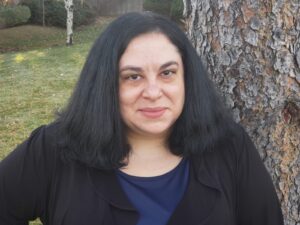Select an item by clicking its checkbox
To My Beloveds, What they don’t tell you about being neither-this-nor-that is that it’s problematic. You are always living in the in-betweenness of things. That means you’re suspect, you’re shifty, you can’t be trusted. People want you to pick one thing, to be one thing, ...
In a previous blog, I detailed some of the ways in which white students’ practices of coloniality are manifested in the classroom through co-optation, silence, and resignation. Such praxes—often unconscious and subtle—must be unmasked, especially for those who consider themselves to be allies for justice with communities of ...
There are two subjects about which I am passionate as a teacher and scholar: leadership formation and decolonial praxis. These areas may seem to be at odds with one another, at least in white western worldviews; but disrupting colonial frameworks and ways of being and doing leadership in ministry and ...
It has been my experience that some of the most exciting, innovative, life-giving, and life-altering activities occur at the edges of established institutional life. Similar to the generation of new faith communities within denominations that look and feel nothing like their long-standing churches, the peripheries of theological schools often hold ...
I believe we can create an altar-like pedagogy that turns the classroom into a sacred space where we nurture our students’ mindbodyspirit, where teaching is acknowledged as a sacred ritual of raising consciousness, and where we pay homage to and connect with the history of our ancestors’ struggle and resistance. — ...
